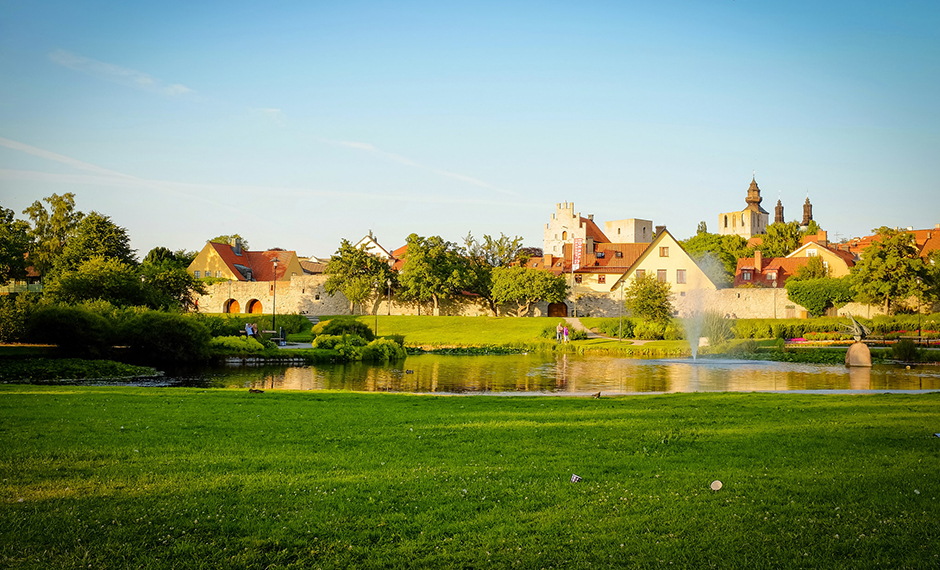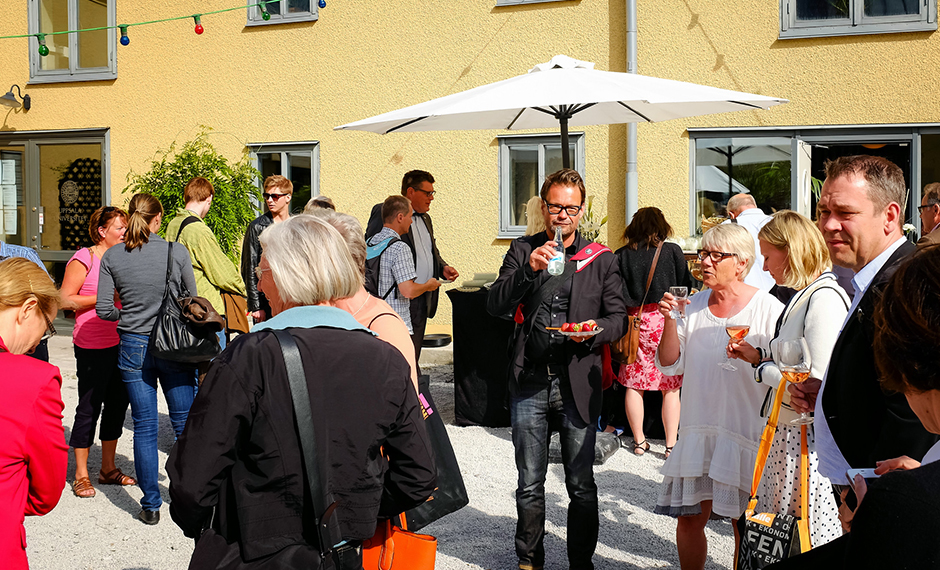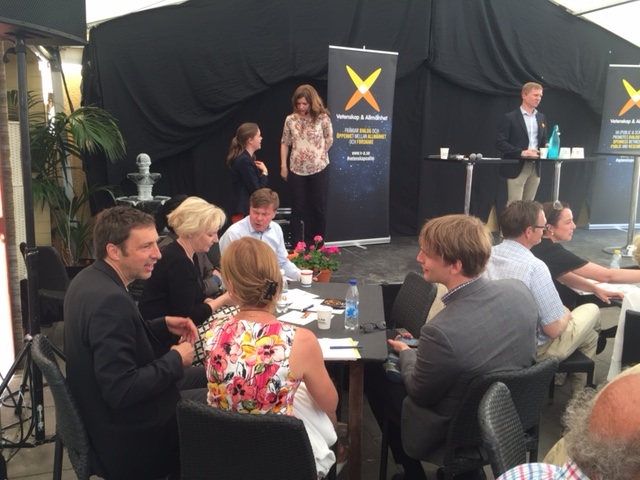The hope for a better life – that’s the foundation for the strong support for investing in research and innovation among Swedes, according to Helene Hellmark Knutsson, Swedish minister for higher education and research. She participated in VA’s dialogue seminar on 30 June during Almedalen week in Visby.

It isn’t often that you can listen to the leaders of Sweden’s political parties, meet the CEOs of some of Sweden’s largest companies, and chat to policy makers over a drink – all in one day. But at Almedalen Week (Almedalsveckan in Swedish), these types of encounters are all possible.
Held each July on the beautiful Swedish island of Gotland, Almedalen is one of the most important forums in Swedish politics and possibly the largest political gathering in Europe. During the week, the town of Visby is taken over and packed with 3,500 scheduled events, such as seminars, breakfast meetings, speeches and networking events held in hotels, cafes, restaurants and parks. This year over 30,0000 people attended, including local and national politicians, policy makers, lobbyists, trade unionists, journalists, business leaders and representatives of non-governmental organisations and universities.
It is a unique opportunity for people to meet in a relaxed and informal environment to discuss a myriad of political and social issues, ranging from education, welfare and immigration to sustainability, research policy and globalisation.
This year, Vetenskap & Allmänhet organised a dialogue seminar, co-organised two more seminars and colleagues also participated as invited speakers at five further events.
Engaging civil society in research
How to engage civil society in research and innovation was the topic of VA’s lunch seminar, which attracted people from academia, business, the public sector as well as civil society. After an introduction about the need and opportunities for engaging civil society in research, Karin Larsdotter from VA, presented the concept of RRI (responsible research and innovation) and the ambitions of the European RRI Tools project. Linda Bell, in charge of EU relations at VINNOVA, Sweden’s innovation agency, then talked about the funding available to projects that support collaboration between civil society, industry and academia, stressing that Sweden has an unusually strong civil society.
Ludvig Sandberg from the National Forum for Voluntary Organisations, an umbrella organisation for civil society organisations working within the social sphere in Sweden, and Johanna Hållén, PRO, the Swedish National Pensioners’ Organisation, gave concrete examples of successful projects that have adopted this approach. Ola Segnestam Larsson from Ersta Sköndal University College also shared a researcher’s perspective and how, through collaboration, scientists can help to find solutions to societal problems identified by civil society organisations. For future innovations to be sustainable as well as socially accepted, civil society organisations have a crucial role to play, a message that was positively welcomed by those attending.
Strengthening dialogue between science and society
VA’s second seminar brought together representatives from research, society and politics to discuss the forthcoming research policy bill and the incentives that are needed to encourage collaboration and dialogue between research institutions and society. With Sweden’s Minister for Higher Education and Research, Helene Hellmark Knutsson in the panel, it provided a good opportunity for participants to share their ideas on ways to strengthen dialogue between science and society. Suggestions included creating more arenas and platforms for dialogue with the public, reviewing the incentive and reward structure to undertake public engagement activity at both an individual and institutional level, as well as the way resources are allocated.
The Minister highlighted the need for a multi-disciplinary and long-term approach when it comes to investing in research and named a few areas that would benefit from increased collaboration with researchers, including schools and the education system, healthcare, sustainable cities and health promotion. She also cited the importance of a cross-disciplinary approach.
Also discussed was the need for more sophisticated ways to measure the societal impact of research and for Sweden to undertake more international research collaboration.
As Johan Sterte, Vice-Chancellor of Luleå University of Technology, pointed out, one of the reasons that engagement with society is seen as a positive activity by research institutions is because it leads to increased quality in education and research. In an increasingly open and collaborative society, citizens also need to understand why research is important, something that was reiterated by the Minister for Higher Education and Research. She stressed that public support for investing in research is high but needs to be safeguarded for the future.
It was a busy yet rewarding week for colleagues at VA. Both seminars were hugely successful and well attended with over 100 people at each. Colleagues also attended dozens of other events. As Cissi Askwall, Secretary General at VA, commented “Almedalen is a great opportunity to raise the profile of VA as a key player in the field of public engagement and science communication, make lots of new contacts, gain inspiration and broaden our own knowledge.”



